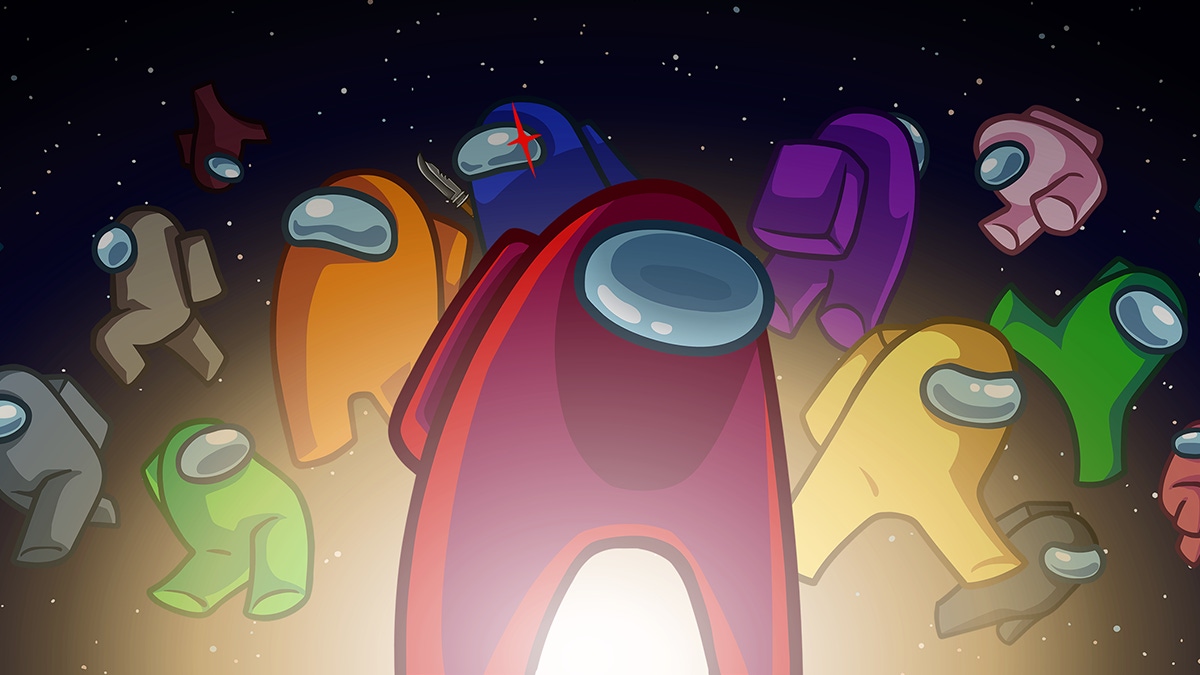Trending
Opinion: How will Project 2025 impact game developers?
The Heritage Foundation's manifesto for the possible next administration could do great harm to many, including large portions of the game development community.
Pressure is mounting on Unity to scrap its new Runtime Fee policy, and there are even reports that a lawsuit could be in the offing.

Innersloth co-founder Forest Willard isn't sure Unity will reverse its decision to implement a new Runtime Fee that will charge those using its game engine a per-install tariff once certain thresholds are met.
In an X thread posted last night, Willard explained he "just got off a call with Unity" and claimed "the vibe of the meeting was that there will probably be more concessions for developers." Notably, he added there was a sense the company is currently unwilling to fully back down. As a result of that conversation, Willard said he's going to set up meetings with other platforms after Tokyo Game Show.
Sharing more details, the Among Us programmer said Unity seems to think the situation will blow over if it convinces a large portion of its userbase that they won't be affected. Yesterday, the company issued a clarifying statement to explain that less than 10 percent of devs would be impacted by the new fee, and claimed charges incurred by titles on Xbox Game Pass, PlayStation Plus, and similar subscription services will be paid by distributors—so, in this case, Microsoft and Sony.
"By making concessions and discounts over Game Pass or re-installs or doubling down on Unity services, they hope we don't care who remains affected," said Willard, who added that developers also don't have to settle for a revenue sharing agreement simply because that appears to be the next best option. "Unity's involvement in helping you make your game ends with your last release," he continued. "Unreal's pricing isn't fair. It's just simpler."
It has been three days since Unity announced its new policy, which was subsequently amended and clarified in an attempt to appease a furious community of developers, and it's clear that creators big and small still feel blindsided by the news.
An increasing number of studios and creators have shared statements on social media to lambast both the policy and Unity itself, with many suggesting the company has committed an unforgivable act of betrayal.
Earlier this week, Innersloth (Among Us), Mega Crit (Slay the Spire), Facepunch Studios (Rust), Massive Monster (Cult of the Lamb), and Aggro Crab (Another Crab's Treasure) posted statements that indicated they will be abandoning Unity if the company decides to double down on the install fee.
As highlighted by X account FuckedByUnity, which has been gathering statements to underline the scale of the outrage, over 100 studios and solo developers including Visai Games (Venba), No Brake Games (Human Fall Flat), IronOak Games (For The King), Kinetic Games (Phasmophobia), Nerial (Reigns), Red Hook Studios (Darkest Dungeon), and Something We Made (Toem) have all spoken out publicly.
"We seriously question whether we can trust Unity moving forward," wrote Human Fall Flat developer No Brakes Games, noting it has already begun work on a sequel that is being made with Unity. "Unity, we're asking you to reverse this decision. Prioritize your customers and players over corporate greed."
Toem developer Something We Made said the Runtime Fee "would mean that too many people installing Toem could challenge our survivability, which is outrageous and straight up backwards."
That sentiment was shared by Venba developer Visai, with the studio explaining indies live on "razor-thin margins" that will make learning a whole new engine unviable for smaller studios who want to jump ship. "The relationship between a game engine and a game developer should be reciprocal," added the studio. "We are calling on Unity for a complete reversal of the announced policies and [for it to] implement strong TOS protections. We feel this is the bare minimum needed to start the work towards regaining the game dev community's trust."
Odd Tales Games founder Tim Soret, meanwhile, described the move as the "most impractical, most unhinged business decision I've ever seen" and called for the resignation of Unity CEO John Riccitiello.
Axios reporter Stephen Totilo has learned that some developers have been discussing the possibility of filing a class-action lawsuit against Unity. According to Strange Scaffold founder Xalavier Nelson Jr., some of the "most significant developers in the space using the engine" have been involved in those conversations.
Game Developer has also reached out to Microsoft and Sony for their take on the fee and, crucially, whether or not they'll be willing to foot the bill for titles that get bundled into Xbox Game Pass and PlayStation Plus—although we've yet to hear back from either company.
As for Unity, the firm has been directing concerned developers to an FAQ on its website in an attempt to ease tensions. Some, however, have suggested the document is still half-baked, noting how Unity neglects to fully explain how it will effectively prevent "install bombing" beyond stating it will "work directly" with developers where fraud or botnets are suspected of malicious intent. Despite reiterating that installs driven by charities or charity bundles will also be exempt from the Runtime Fee, the FAQ also fails to detail how exactly that process will work.
Outlining why the company chose to implement an install fee in the first place, Unity Create president Marc Whitten told Game Developer it needed to "better balance the value exchange between developers." He added that supporting Unity Runtime has become "quite expensive," and said the bottom line is that Unity needs to "make more money so that we can continue to invest in the engine."
You May Also Like